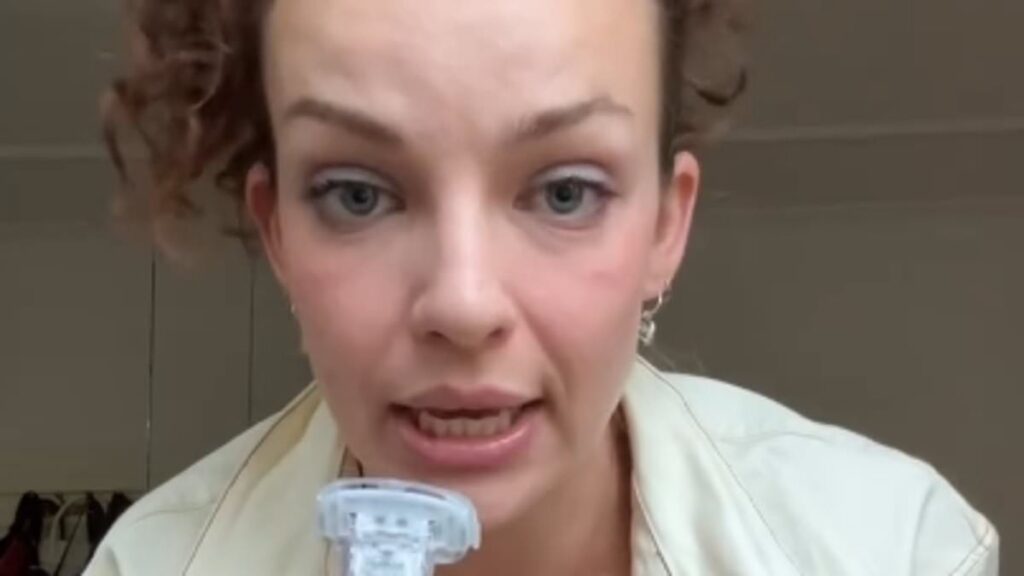
In a week filled with revelations and controversies, Abbie Chatfield finds herself at the center of a legal storm following a defamation lawsuit filed by her former friend, Heath Kelley. The influencer’s response to the lawsuit has sparked a flurry of reactions, as details of her unconventional defense strategy have come to light.
On September 8, just hours after the lawsuit was filed, Chatfield turned to her Instagram fan group, humorously dubbed her “brains trust,” seeking legal advice. “Is any chook in here a… defamation lawyer?” she asked, prompting a wave of responses from her followers. Among the suggestions was the name Sue Chrysanthou, a highly regarded barrister known for her high-profile cases. However, in a twist of irony, Chrysanthou was already representing Kelley in the case against Chatfield.
Legal and Social Media Entanglements
The lawsuit stems from a series of Instagram Stories posted by Chatfield on May 7, where she accused Kelley of supporting “genocide” and the “slaughter of children” in Gaza. These posts came after Kelley expressed his pro-Israel stance in private messages to Chatfield, which she then shared publicly. Court documents describe her accusations as “inherently serious,” leaving Kelley open to “hatred, ridicule, and contempt.” He is seeking $95,000 in damages and a public apology from Chatfield.
This legal battle highlights the complexities of social media interactions and their potential legal repercussions. As public figures increasingly use platforms like Instagram to voice opinions, the line between personal expression and defamation becomes blurred. Chatfield’s case serves as a cautionary tale for influencers navigating the legal landscape of digital communication.
The Political and Media Landscape
Meanwhile, in the political arena, Freya Leach, a former Liberal candidate, has made headlines for her recent move from Balmain to Cronulla. Leach, who previously ran in the 2023 NSW State Election, has relocated with her husband, Cooper Gannon, marking a new chapter in their lives. The couple’s decision to settle in Cronulla, a Liberal stronghold, aligns with their political affiliations and ambitions.
Leach’s move comes amid changes in her media career, as Sky News recently canceled her talk show, “Freya Fires Up.” The couple’s home purchase was facilitated by the First Home Super Saver scheme, reflecting broader trends among young Australians seeking to enter the property market.
Media Mishaps and Misunderstandings
In the world of sports media, Tiffany Salmond’s career has hit a stumbling block. The former Fox Sports presenter claims she was sidelined by Triple M despite assurances of work opportunities in Sydney. Salmond’s frustrations underscore the precarious nature of freelance work in the media industry, where verbal agreements often lack the security of formal contracts.
Salmond’s experience serves as a reminder of the challenges faced by freelancers, who are often left vulnerable to shifting priorities and unfulfilled promises. Her story highlights the need for clear communication and contractual agreements in professional engagements.
Political Satire and Policy Debates
In Canberra, political satire has taken center stage as the Liberals face internal discord. The issuance of “Charter Letters” to shadow ministers, outlining expected conduct, has been met with criticism and mockery. This move, intended to enforce discipline, has instead exposed divisions within the party, with some members openly deriding the initiative.
Additionally, Special Minister of State Don Farrell’s proposal to expand Parliament has sparked debate over the cost and necessity of such a move. Critics argue that increasing the number of MPs and senators would burden taxpayers without addressing pressing issues like cost-of-living pressures.
Finally, Environment Minister Chris Bowen’s use of AI-generated imagery to critique the Coalition’s nuclear policy has raised questions about the role of technology in political discourse. While Bowen’s post was intended as satire, it coincides with broader concerns about misinformation and the integrity of information in the digital age.
As these stories unfold, they reflect the dynamic and often unpredictable nature of media, politics, and public life in Australia. From legal battles to political maneuvering, each narrative offers insights into the challenges and complexities of contemporary society.





